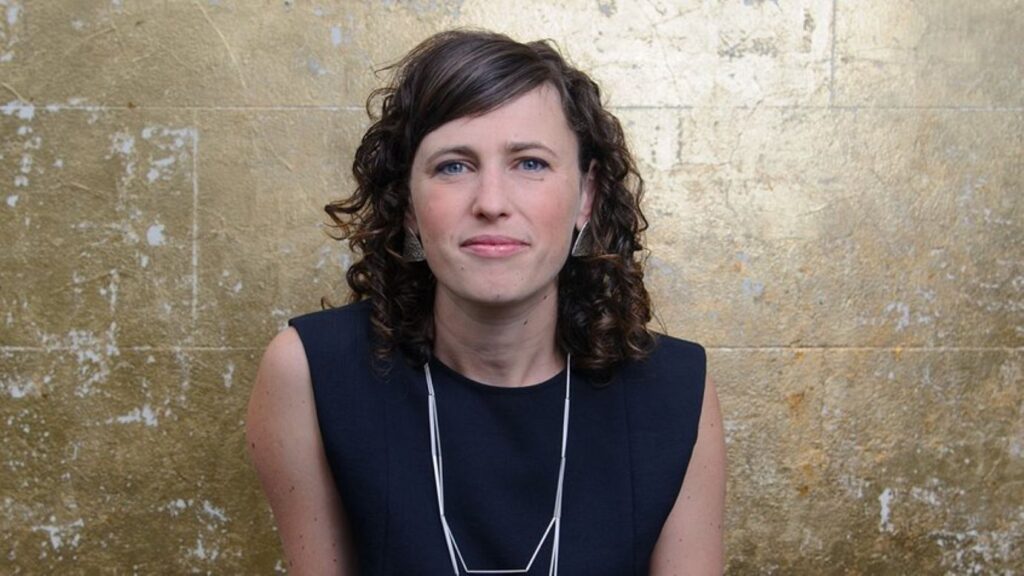While gaming is often perceived as an isolating activity—where one person stares intently at a screen for hours on end—the truth is, it’s always been inherently social.
Studies have consistently shown that gaming can help people to form friendships and find a safe space to connect while overcoming social barriers.
The problem is, for women and non-binary individuals, online gaming spaces are often overwhelmingly male, leaving them to feel out of place and disconnected. It’s an issue that ACMI’s Women and Non-Binary Gamer’s Club set out to address when it was launched in 2018 by a former team member and passionate gamer, Caitlin Cronin.
“It was designed to create a safe, inclusive and fun space for women and non-binary folk to share their love of games in what has been traditionally a male-dominated space that has had many instances of toxic and negative behaviours,” Emily Sexton, ACMI’s Director of Programming tells Women’s Agenda.
“The format echoed a traditional book club, with members playing a game before each session and sharing their thoughts on it and similar games.”
Now in its seventh year, the Women and Non-Binary Gamer’s Club is run on social platform Discord, which has allowed the community of gamers to grow and communicate throughout each month in the lead up to club night. These events are held mostly online, with some in-person offerings throughout the year.
The club is now hosted by Claire Obsorn-Li, a writer on games, digital culture and art.
“We have about 100 members on the server who are consistently engaged, commenting and sharing conversation most days,” Sexton says.
Typically, the people who take part in the club are aged between 18 and 28, identifying as women (both cis and transgender) or non-binary. The group is defined by their interest in games: whether that be as players or fans of particular games, or as students or professionals in game design.
Sexton describes it as a “friendly and welcoming” group, where there’s no pressure to have played the game in order to attend the monthly club night.
“It’s mostly a space for those interested and enthusiastic about games to share that passion. People have made new friends, found new collaborators for creative projects, felt more connected to their community,” Sexton says.

Can a gaming club help people to overcome loneliness?
According to the latest Medibank Loneliness Population Index, more than half of Australians feel lonely in a typical week. While it’s often thought that older people suffer most from loneliness, it’s actually young people who are most affected in Australia. For young women and non-binary young people especially, loneliness is a key social issue.
It means finding new ways to connect—whether it be in-person or online—is as important as ever. Indeed, Medibank’s research shows that 20 per cent of people have accessed an online community to help manage their loneliness.
According to Sexton, ACMI’s Women and Non-Binary Gamer’s Club has quickly become a place of “pure joy” and connection for those who take part.
“In 2025, online spaces aren’t safe for a majority of people – they’re fractured, unmonitored and full of misinformation,” she says. “Plenty of analysts have pointed to a rise of smaller, curated online communities driven by mutual interests as a trend that will continue to grow.”
“Combine that with the trust that people feel in a cultural institution like a Museum, and a space like WNBGC becomes quite precious. We’re proud that the WNBGC can be a place that is a monthly (or daily) space for the pure joy of sharing the very best of video games – the creativity, collaboration, problem-solving, adventure and pure joy of playing and sharing.”
The social power of connecting with like-minded people
While it can often take a leap of faith to attend a new club or meet new people, groups like this gaming club can have a powerful impact on young people’s lives.
Sexton says that even if members aren’t engaging super regularly, just knowing that like-minded people are close by and interested to chat is a “powerful thing”.
“Also, participating in something purely for the companionship or cultural benefit, with no professional or commercial reason, can be a very positive and reassuring part of your life,” she says.
“For someone who’s lonely or experiencing a tough mental health moment, something as simple as sharing a cheat code or showing how you’ve beaten that particular boss – it’s really positive.”
To learn more about Medibank’s commitment to reducing loneliness head to We Are Lonely | Medibank.
About the research
Research commissioned by FiftyFive5 on behalf of Medibank. Research was conducted in July 2024, among a sample of (n=4,131) Australians.

